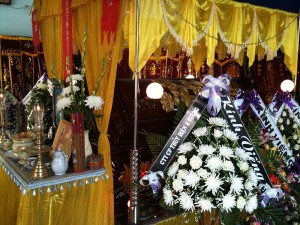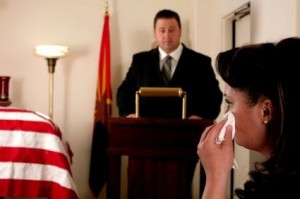 The funeral traditions of the Spanish-speaking cultures are similar, but have many differences and variations from each other. For the purpose of this article, we are generalizing the similarities of customs rooted in Hispanic cultures to give you a brief description of what to expect at a Hispanic Funeral.
The funeral traditions of the Spanish-speaking cultures are similar, but have many differences and variations from each other. For the purpose of this article, we are generalizing the similarities of customs rooted in Hispanic cultures to give you a brief description of what to expect at a Hispanic Funeral.
Hispanic Funeral Traditions Are Primarily Catholic
Because of the how deeply-rooted Catholicism is in Hispanic heritages, even non-Catholics include Catholic traditions in their funerals.
The Hispanic culture accepts death as part of life. It is the end of the life in the flesh, and a beginning of the life in spirit. Catholic Hispanics celebrate one’s death, because the soul is going “home” once the body has died. The funeral process doesn’t begin after death, but before one passes.
- Whenever the situation allows, the funeral process begins on the death-bed. A priest will give the dying person their Last Rites, which consist of confession (if possible), communion and pastoral blessing.
- A family member will stay with the body of the deceased until the preparations begin for the funeral services.
- A traditional Hispanic Funeral will consist of 3-4 days of services and vigils to honor and pray for the departed soul.
- A Catholic Priest will lead the services for the funeral. Starting with the wake.


